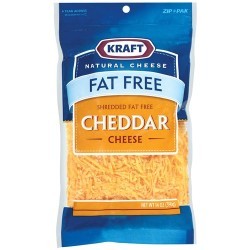Top Class Actions’s website and social media posts use affiliate links. If you make a purchase using such links, we may receive a commission, but it will not result in any additional charges to you. Please review our Affiliate Link Disclosure for more information.

On Wednesday, Kraft urged a California federal court to vacate its June 2015 decision to certify the class, saying it’s evident the matter cannot be tried on a class basis since ongoing discovery impacts the propriety of certification.
“Now that fact and expert discovery have closed, it has become clear that the class must be decertified because this case cannot be tried on a class basis,” Kraft said. “Several courts have denied certification or decertified a class under very similar circumstances.”
Mainly, Kraft takes issue with the plaintiffs Claudia Morales and Mocha Gunaratna’s damages expert, Dr. Anand Bodapati, arguing his report does not measure a “price premium” and therefore is an unreliable and inadmissible method to calculate damages.
In the class action lawsuit, plaintiffs claim that Kraft’s use of the term “natural cheese” is deceptive to consumers and the company charges a premium price compared to other similar products that don’t use the term.
But Kraft points to Bodapati’s deposition, where he conceded he “was not . . . charged with” the “question of damages”. Instead, Bodapati readily admitted to being tasked with determining a consumer’s hypothetical “willingness to pay” for a Kraft Fat Free Shredded Cheddar product with the term “Natural Cheese”. But, Kraft argues, the expert failed to measure the alleged premium Kraft charged, nor the actual damages consumers reportedly suffered.
“Numerous courts have similarly rejected conjoint analysis damages model for this very reason, ruling that it does not measure the alleged real-life price premium but rather a hypothetical ‘willingness-to-pay’ by consumers,” Kraft said.
Additionally, Kraft contends that the expert’s report is riddled with a multitude of flaws. More specifically, the survey failed to account for the historical price variations over the past six years included in the class period.
On this account along with other issues, Kraft requested in a separate motion to exclude Bodapati’s testimony in its entirety, arguing that it is “so riddled with methodological mistakes, factual flaws, and biased assumptions” making the results wholly unreliable.
Kraft also filed a concurrent motion contending that should the court exclude the expert’s testimony, Kraft should be granted partial summary judgment.
“If his expert opinions are excluded — as they must be — there will be no triable issue of fact remaining as to damages or materiality,” Kraft said. “Plaintiffs accordingly cannot meet their burden as to either requirement, and partial summary judgment must be entered in favor of Kraft Heinz on damages and the [Consumer Legal Remedies Act] claim.”
In May 2014, the class action lawsuit was removed to federal court, with Morales and Gunaratna alleging that the term “natural” displayed on Kraft’s fat-free cheddar cheese packaging conflicted with the product’s artificial coloring ingredient. Additionally, the plaintiffs claim that the artificial coloring poses health concerns such as hyperactivity in children or allergic reactions.
The case is scheduled for trial this summer, following the Court’s rejection in December of Kraft’s bid for partial summary judgment on grounds that using artificial coloring in cheese products is industry standard.
“Kraft’s evidence that ‘natural cheese’ is a term of art within the cheese-making industry has some force, but it is not sufficient to show the absence of a triable issue of fact,” U.S. District Judge John A. Kronstadt ruled.
Now, Kraft’s focus is aimed at decertifying the class, challenging not only the expert testimony of Bodapati, but that the consumers failed to ascertain the manageability of the class.
According to Kraft, since the class only includes individuals who purchased the cheese because it was advertised as “natural”, the court would have to investigate each potential class member’s claims to determine the “proverbial needle-in-the-haystack consumers,” Kraft stated.
And to complicate matters more, the court would then have to verify whether or not each consumer construed “natural cheese” to mean that the cheese had “no artificial ingredients,” the company insists.
The consumers are represented by Shireen Clarkson and Ryan Clarkson of Clarkson Law Firm PC.
The Kraft Cheese False Advertising Class Action Lawsuit is Claudia Morales, et al. v. Kraft Foods Group Inc., Case No. 2:14-cv-04387, in the U.S. District Court for the Central District of California.
ATTORNEY ADVERTISING
Top Class Actions is a Proud Member of the American Bar Association
LEGAL INFORMATION IS NOT LEGAL ADVICE
Top Class Actions Legal Statement
©2008 – 2024 Top Class Actions® LLC
Various Trademarks held by their respective owners
This website is not intended for viewing or usage by European Union citizens.















12 thoughts onKraft Moves to Decertify “Natural Cheese” False Advertising Class
Use kraft and Sara gently. Please add me to suit. Thanks
Add me to the suit. I do purchase this cheese.